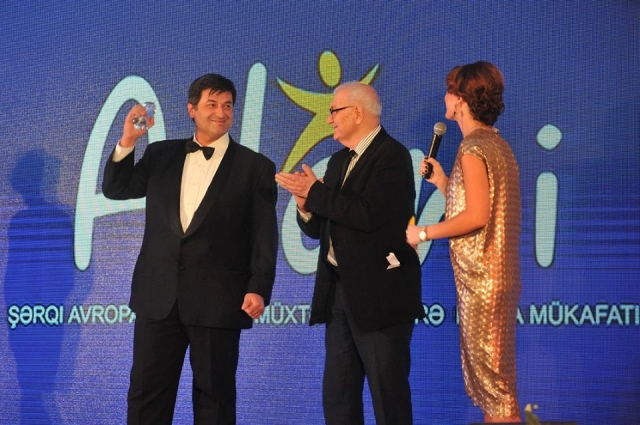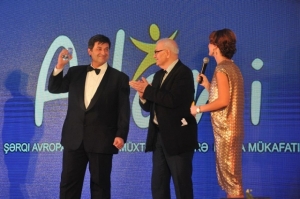Adami Media Prize Reveals Winners
Georgia’s Capital city Tbilisi hosted the Gala ceremony of the newly established ADAMI Media Prize for Cultural Diversity in Eastern Europe.
The winners for this year prize were announced at a festive award ceremony on Thursday 10th, at the National Parliamentary Library in Tbilisi.
Georgian Giorgi Tskhvediani’s documentary Niko’s Way won the ADAMI Media Prize for Information in the non-fiction category; How to Cross (from Jiliz to Jiliz) by Armenian directors Marine Kocharyan and Sona Kocharyan was awarded with the YOUNG ADAMI Media Prize; Chai Khana and Jumpstart Georgia won the ADAMI Online Prize for Web Pages; and Chai Khana's Oktay Namazov (Azerbaijan) won the media prize for Web Videos for 30 families of Griz, a short documentary movie.
A Georgian-Azeri stand-up comedian honored with a special mention. Each prize is €2500.
The international prize premiered this year, and Georgia was honored to host the award ceremony during a gala attended by Georgian President Giorgi Margvelashvili, including numerous foreign diplomats, filmmakers and media professionals.
Around 100 hundred films, TV, and online contributions, promoting peaceful coexistence of people of different national, ethnic, religious or cultural backgrounds from the six EU’s Eastern Partnership countries (Armenia, Azerbaijan, Belarus, Georgia, Moldova and Ukraine) were submitted and reviewed by international jury members.
Journalists and filmmakers from the EU’s Eastern Partnership countries contested for the ADAMI Media Prize, to promote minorities, migration and cultural diversity issues for cultural diversity in Eastern Europe.
The jury was composed of media representatives linked to cultural diversity, and are from European and Eastern Partnership countries including Georgian Public Broadcaster, NTU, Ukrainian Internews, Channel 5, Moldovian TV, Kultura Plus from Azerbaijan, European Broadcasting Europe and Deutsche Welle.
The ADAMI media Prize builds bridges between different media players in the international market and promotes well-crafted works of journalists and filmmakers.
It further increases media interest in the promotion of cultural diversity and encourages program managers and filmmakers in Eastern Europe and the Caucasus to network.












